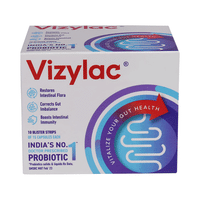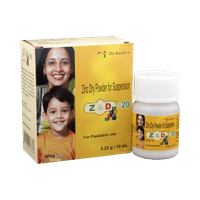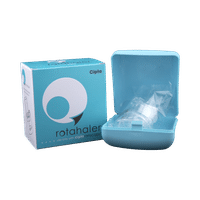food interaction for Azinik LX
alcohol interaction for Azinik LX
pregnancy interaction for Azinik LX
lactation interaction for Azinik LX
food
alcohol
pregnancy
lactation
Azinik LX 250mg/250mg Tablet may be taken with or without food, but it is better to take it at a fixed time.
None
None
CAUTION
It is unsafe to consume alcohol with Azinik LX 250mg/250mg Tablet.
UNSAFE
Azinik LX 250mg/250mg Tablet is unsafe to use during pregnancy as there is definite evidence of risk to the developing baby. However, the doctor may rarely prescribe it in some life-threatening situations if the benefits are more than the potential risks. Please consult your doctor.
CONSULT YOUR DOCTOR
Azinik LX 250mg/250mg Tablet is probably unsafe to use during breastfeeding. Limited human data suggests that the drug may pass into the breastmilk and harm the baby.
CONSULT YOUR DOCTOR
SALT INFORMATION FOR Azinik LX
Levofloxacin(250mg)
Uses
Levofloxacin is used in the treatment of bacterial infections. It is also used in infections of urinary tract, tonsils, sinus, nose, throat, female genital organ, skin & soft tissues and lungs (pneumonia).
How it works
Levofloxacin is an antibiotic. It works by stopping the action of a bacterial enzyme called DNA-gyrase. This prevents the bacterial cells from dividing and repairing, thereby killing them.
Common side effects
Headache, Dizziness, Nausea, Diarrhea, Vomiting, Insomnia (difficulty in sleeping), Increased liver enzymes, Infusion site reaction, Inflammation of vein, Gastrointestinal disturbance, Rash, Blood cell abnormalities, Lymphatic system abnormalities, Low blood platelets, Decreased white blood cell count (neutrophils), Angioedema (swelling of deeper layers of skin), SIADH (water retention due to excessive ADH), Hypoglycemia (low blood glucose level), Convulsion, Paresthesia (tingling or pricking sensation), Blurred vision, High blood pressure, Tachycardia, Palpitations
Azithromycin(250mg)
Uses
Azithromycin is used in the treatment of bacterial infections. It is used in bacterial infections of tonsils, sinus, ear, nose, throat, skin and soft tissues and lungs (pneumonia).
How it works
Azithromycin is an antibiotic. It works by preventing synthesis of essential proteins required by bacteria to carry out vital functions. Thus, it stops the bacteria from growing, and prevents the infection from spreading.
Common side effects
Vomiting, Nausea, Abdominal pain, Diarrhea, Headache, Palpitations, Chest pain, Indigestion, Flatulence, Dark colored stool, Vaginal moniliasis, Vaginal inflammation, Fatigue, Rash, Itching, Photosensitivity, Nephritis, Dizziness, Vertigo, Angioedema (swelling of deeper layers of skin)
SUBSTITUTES FOR Azinik LX
48 Substitutes
48 Substitutes
Sorted By
 Rs. 79.41save 28% more per Tablet
Rs. 79.41save 28% more per Tablet Rs. 79.41save 28% more per Tablet
Rs. 79.41save 28% more per Tablet Rs. 57.66save 48% more per Tablet
Rs. 57.66save 48% more per Tablet Rs. 131.25save 40% more per Tablet
Rs. 131.25save 40% more per Tablet Rs. 89.20save 59% more per Tablet
Rs. 89.20save 59% more per Tablet
Expert advice FOR Azinik LX
- Your doctor has prescribed Levofloxacin to cure your infection and improve symptoms.
- Do not skip any doses and finish the full course of treatment even if you feel better.
- Discontinue Levofloxacin and inform your doctor immediately if you get a rash, itchy skin, swelling of face and mouth, or have difficulty in breathing.
- Diarrhea may occur as a side effect but should stop when your course is complete. Inform your doctor if it doesn't stop or if you find blood in your stools.
- Notify your doctor if you feel pain in your tendons, numbness, or tingling sensations.
- Inform your doctor if you are pregnant or planning to conceive or breastfeeding.
- Your doctor has prescribed Levofloxacin to cure your infection and improve symptoms.
- Do not skip any doses and finish the full course of treatment even if you feel better.
- Discontinue Levofloxacin and inform your doctor immediately if you get a rash, itchy skin, swelling of face and mouth, or have difficulty in breathing.
- Diarrhea may occur as a side effect but should stop when your course is complete. Inform your doctor if it doesn't stop or if you find blood in your stools.
- Notify your doctor if you feel pain in your tendons, numbness, or tingling sensations.
- Inform your doctor if you are pregnant or planning to conceive or breastfeeding.
Frequently asked questions FOR Azinik LX
Levofloxacin
Q. Is Levofloxacin safe?
Levofloxacin is safe if used in the dose and duration advised by your doctor. Take it exactly as directed and do not skip any dose. Follow your doctor's instructions carefully and let your doctor know if any of the side effects bother you.
Q. What if I forget to take a dose of Levofloxacin?
If you forget a dose of Levofloxacin, take it as soon as you remember. However, if it is almost time for your next dose, skip the missed dose and take the next scheduled dose in the prescribed time. Do not double the dose to make up for the missed one as this may increase the chances of developing side effects.
Q. Can the use of Levofloxacin cause diarrhea?
Yes, the use of Levofloxacin can cause diarrhea. It is an antibiotic which kills the harmful bacteria. However, it also affects the helpful bacteria in your stomach or intestine and causes diarrhea. If you are experiencing severe diarrhea, talk to your doctor about it.
Azithromycin
Q. Is Azithromycin safe?
Azithromycin is safe if used at prescribed doses for the prescribed duration as advised by your doctor.
Q. What if I don't get better?
You should inform your doctor if you do not notice any improvement in your symptoms after 3 days of taking Azithromycin. Also, if your symptoms get worse, inform your doctor immediately.
Q. Can the use of Azithromycin cause diarrhea?
Yes, the use of Azithromycin can cause diarrhea. It is an antibiotic which kills the harmful bacteria. However, it also affects the helpful bacteria in your stomach or intestine and causes diarrhea. If you are experiencing severe diarrhea, talk to your doctor about it.























